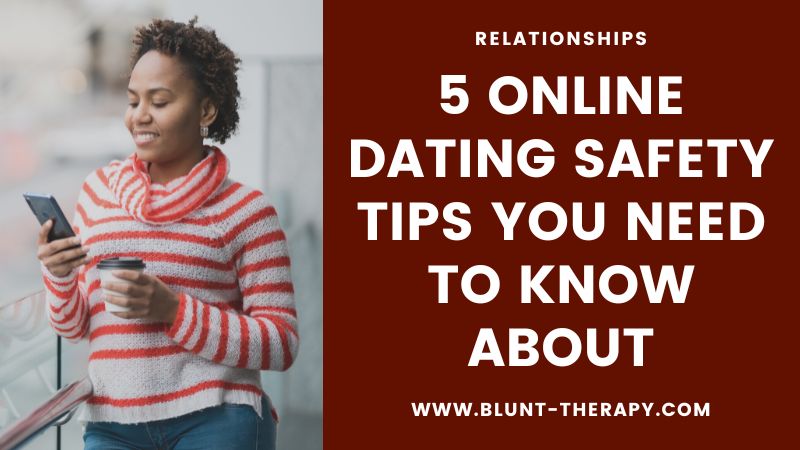Affiliate link notice: As an affiliate of BetterHelp and other third-party vendors, We will receive compensation if you make a purchase using the links provided on this page. For more information, visit our disclosure page.
Last Updated on December 14, 2021 by Randy Withers, LCMHC
“I don’t think I should be here anymore,” she said, digging for her keys. This was in 2008. The sky was overcast and gray, the air crisp and dry.
The neighborhood was so still I could almost hear her thoughts. She was about to ask for a divorce.
“I had a good time,” I said hopefully. “And my mom always likes to see you.”
“Your mom’s great,” she conceded. She had found her keys and was walking to her car. I followed.
“I’m really starting to feel better now,” I told her. “Really I am. The sky is bluer. I can hear the birds chirping. I can think. Those thoughts we talked about are gone.”
She stopped. Our eyes met. “What is it you want from me?” she asked.
I had been sick for so many years. Getting well again was my only priority. I didn’t really know how to answer.
“I don’t really know,” I said.
“We need to get a divorce,” she said. “Tell your parents ‘thank you’ for their hospitality, but we need to get a divorce.”
We had been separated for over a year, but the idea of divorce had always seemed so unreal. I’m not sure either one of us had ever said the word aloud.
Now we were talking about divorce. On Thanksgiving Day. I stepped back as if pushed.
“Is there any reason for the urgency?” I asked.
She started her car, an electric blue Nissan SUV that I’d helped her pick out. “I’ve been paying your health insurance,” she said. “It’s expensive. I’ve got other things to do with that money.”
The insurance she was referring to had just saved my life by funding my week-long hospital stay.
She closed the car door and turned the ignition. “I have to say,” I told her through the window. “My therapy is going well. The doctor said I can probably start looking for work again soon.”
She knew that what I was saying to her was that without my insurance, I couldn’t get treatment. I hadn’t been able to work for over a year.
She had grown tired of my illness, tired of me. But the thing she hated most was spending money on me. The thing I hated most was being a burden.
“It’s no longer my responsibility to care about that,” she said. Her car jolted out of the space and snaked around the corner. She was gone.
Kadee, our pit-boxer, trotted up to see what was going on. She had been watching us from the front door. She came to my leg and I patted her side. She was a very good dog.

In 2005, I had my first experience with what is officially called a “Major Depressive Episode.” I had just turned 30. My wife and I were at a friend’s home for Thanksgiving, and it hit me.
One moment I was okay. The next, severe clinical depression. I had gotten off drugs earlier that year. My marriage was on the rocks now that I was getting better.
My recovery angered my wife, who felt threatened by it and was unwilling to leave the past in the past.
A year later, on yet another Thanksgiving and still suffering from the fallout of that depressive episode, we came home to a water leak in our newly-purchased home. I had hired a guy that was in recovery to install a water line above our kitchen so that we had a working ice machine. He bungled the job and the kitchen roof caved in from all the water damage.
35,000 dollars in damages. The floors. The walls. The ceilings. The kitchen appliances. Everything, ruined.
I hired the guy who did it, so my wife blamed me for that, too.
By the Fall of 2007, still suffering from severe depression and barely able to work, the school where I worked sent me home. I had fallen asleep in my office. They thought I had been using drugs again. I was told not to come back without permission.
“I can’t have you looking so depressed around the students,” the headmaster told me. “You look like you’re going to come on campus with a gun and start shooting people.”
I had been there for 9 years. I used to babysit for his children.
I spent that Thanksgiving fighting off panic attacks and trying not to think that my career was over. My parents told me not to overreact. Everything would work out.
But that’s what parents are supposed to say. Everything did not work out. Everything imploded.
The next 12 months were worse. My depression consumed me. I couldn’t work. I couldn’t sleep. I couldn’t think.
And because I couldn’t work I couldn’t pay my mortgage.
Because I couldn’t pay my mortgage the bank foreclosed on the house.
Because we lost the house my wife decided she’d had enough.
By October of 2008, we were separated. I moved in with my parents in St. Augustine. She got herself a one-bedroom apartment in St. Petersburg.
The week Obama was elected — November 4th, 2008 — I was in a psychiatric hospital. About a year before, I had started to experience severe suicidal ideation, and it was all I could do to make it through the day without shooting myself in the head.
It’s amazing how appealing suicide becomes when it’s all you think about day after day.
But in November of 2008, my parents finally figured it out, and they drove me to a psychiatric hospital and checked me in. By that point, my parents were the only ones left in my life.
When a man gets depressed, it’s not exactly like people stand in line to spend time with him.
When you suffer from major depression, the only good thing that happens is that you learn who your friends are.
I learned I didn’t have any true friends. I learned that nobody really gave a damn. Nobody lifted a finger. Except for Kadee, my dog. She was reliable. She was a friend.
And it’s not like spending a week in a hospital cured me. It didn’t give me back my career, which lay in ruins. It didn’t give me back my home, which was repossessed by the mortgage lender. It didn’t give me back my friends. It didn’t fix my finances. And it certainly didn’t fix my marriage.
I did get a one-week reprieve from the psychological agony. Then, a few weeks later, my estranged wife drove up from St. Petersburg on Thanksgiving Day and asked me for a divorce.
Two weeks later, I lost Kadee.
My wife and I had brought Kadee home from the Humane Society after our honeymoon in August of 2000. She was just a puppy. In 2008, when my wife asked for a divorce, Kadee was dying from liver failure, which I did not know at the time.
Because I couldn’t work I wasn’t making trips to the vet a priority, so the disease crept in without me knowing. Among all the other things that happened during that time, my depression killed my dog.
Two weeks after my wife left me, I awoke to find Kadee hiding in my closet. She had tucked herself in at the very back and surrounded herself with clothes. Dogs do this apparently when they know they are dying.
She had wet the floor moments before, and there was blood in it, and she had this look like she was so incredibly embarrassed that she had soiled the floor.
Driving to the veterinary hospital, Kadee lay in a group of blankets, whining quietly. I remember triple-parking by the main office, scooping her up in my arms, and rushing inside with her. The staff had seen me pull up and they were ready for me.
The vet put her down humanely as I held her in my arms. There was light in her eyes and then it was gone.
The vet motioned to his staff. “We’ll give you two some privacy,” he said, shutting the door.
I hadn’t shed a single tear when I first came down with major depression. I hadn’t cried once when I lost my career or my home or when my wife asked for a divorce. But losing Kadee was just too much. She was my child. She was a Very Good Dog.
I’d like to tell you that I learned some sort of important lesson from all this. I’d like to tell you that I now hold some great secret. I’d like to tell you that I learned some great techniques to stave off depression. I’d like to tell you that I got into gratitude lists and journaling and harnessing my chi.
I’d also like to tell you the suicidal ideation went away. It never really did. I’d like to tell you that my ex-wife made a huge mistake and came crawling back. She didn’t.
After our divorce, we never saw one another again.
I’d like to tell you that I got married again. I haven’t.
I’d like to tell you I was able to salvage my career. I didn’t. I never worked at a school again.
If I were to offer some cheap solution to the horrors of major depression, I would be insulting millions who have suffered in silence. If I were to tell you some “neat trick” I learned to stop the endless torrent of suicidal thoughts, I’d be mocking the 47,000 Americans who die by their own hands every year.
The truth is — I’m not sure why I’m still alive. I’m not sure I even deserve to be. I just know that I am. And that, for the moment, is all that matters to me.









